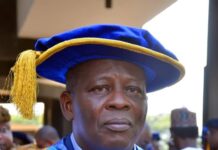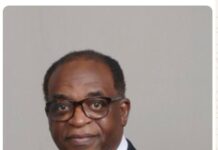
By Osmund Agbo
Following a growing call by a good number of Nigerians to boycott the consumption of beef as a way to protest the wave of gruesome murder of people by killer herdsmen, PUNCH Online in January 2008 commissioned an opinion poll titled; “Herdsmen killings: Should Nigerians boycott beef?” Analyzing the result, out of the 2,961 respondents, 2,252, representing 76% of the total wanted a boycott of beef. 540 of them, however, making up 18 percent of the total number polled did not agree to a boycott. The remaining 6 percent were indifferent.
When asked the reason for voting the way he did, one of respondents in the boycott support group noted that “Buying and consuming the beef sourced from the cows of the killer herdsmen is like buying and wearing blood diamonds from the former killing fields of Sierra Leone.”
It’s 2021 and many state governments especially in Nigeria’s south finally rose to the occasion and banned open grazing, in a bid to protect life and property of their subjects. Yet, these same marauding pastoralists with their herds still carry on everywhere, anytime, unperturbed. You would even find them patrolling the busy streets of state capitals, in clear violation of the ban. As far back as May 2018, the NGO, Mercy Corps reported that clashes between sedentary farmers and headers had claimed more than 7,000 lives in the preceding 5 years, costing the Nigerian economy $13 billion. But I digress.
One of the biggest news of the past week was the explosive article by David Hundeyin titled, “Cornflakes for Jihad: The Boko Haram Origin Story.” In this fact-laden piece, the ace investigative journalist detailed with supporting documents, the intricate web of a shockingly not-too-clandestine relationship between the terror group, Boko Haram and a network of local and international sponsors. Who would have thought that Nasco biscuits that my generation and I grew up consuming with cultic devotion, is intricately woven with a vast global terrorist network.
As jarring as David’s article is, it only reaffirmed what many of us had long suspected. These terror sponsors are very well known within the ranks of the Nigerian intelligence community and by extension, the government. The horrifying reality is the fact that those who swore to lead and protect us are either too timid to go after them for political reason (Jonathan) or seem a tad sympathetic to their cause (Buhari).
Thinking about the palpable lack of interest by the Nigerian government to prosecute terror herdsmen and reading through David Hundeyin’s piece, it felt like a gut punch and my stomach regurgitated bile. I went to bed that night wringing my hands and pondering on the fate of ordinary Nigerians like me who remain helpless in the face of these monumental tragedies. The idea that someone has a knife to your neck and you can’t even do anything to help the situation is not just frustrating but overwhelmingly depressing to contemplate. But is that really the case?
Fortnum and Mason is an upmarket department store headquartered in Piccadilly, UK but with stores in few other major world cities. Established in 1707, Fortnum as its often called had built her reputation on supplying quality food through her chain of restaurants. Foie gras (French for fat liver), a delicacy in French cuisine, was a Furtnam signature and for many years heavily boosted the brand’s fortunes. Until recently.
For starters, Foie gras is made from the liver of geese or ducks, specially fattened through a process of force-feeding called gavage. To produce foie, Ducks are force-fed twice a day for 12.5 days and geese three times a day for around 17 days, causing their livers swell up to ten times their normal size. This makes the birds’ lungs grow bigger and cause them to experience difficulty in breathing. This process of producing Foie did not go down well with animal right groups such as People for the Ethical Treatment of Animals (PETA).
Following more than a decade of PETA campaign that involved letters, picketing and a garden variety of protest such as simulating a giant goose crash into the shop front and then setting up a crime scene around it, the heat was on Furtnum. Even ranking British Members of Parliament such as Caroline Lucas, Bill Oddie, Twiggy and other high profile figures joined the campaign. Finally, in February this year, Fortnum and Mason, yielded to the demand of protesters and stopped selling foie gras.
The PETA Foei gras campaign is not the first time the public was galvanized to protest government, corporate or an individual action considered detrimental to human morality. In June 2015, the General Synod of the United Church of Christ in the USA unanimously approved an Israel divestment resolution, having voted 508-124 in its favor. The Protestant denomination took the stand
as a demonstration of her commitment to peace in the Middle East. In an official release, they stated; “The United Church of Christ condemns all forms of violence and anti-Semitism, and affirms Israel’s right to exist within secure and internationally recognized borders. We similarly assert the right of Palestinians to have a sovereign, independent and viable state within secure and recognized borders”, they said.
The word Boycott was named after the eponymous Irish land agent, Charles C. Boycott who was so treated in 1880 by Irish land league that wanted to extract a concession on rents reduction from him. Since then, boycott has become such a powerful non-violent protest with the purpose of inflicting serious economic, so as to compel the intended target to change an objectionable behavior or simply to indicate a moral outrage. Nigerians can afford to take beef off the menu and bid goodbye to the Nasco brand. We cannot continue to finance the weapon used to maim and kill us.
Whether it’s PETA leading the campaign against cruel treatment of Ducks and Geese or United Church of Christ calmly protesting Israeli occupation of Palestinian territories, examples abound of ordinary people wielding enormous power to effect social or political changes.
It is a known fact that an average African is not as revolutionary-minded as the whites or Arabs. There is this pervasive attitude of “I am neither the cause of the problem nor am I in a political position to fix it.” In order words, “it’s really not my problem.”
It turns out, however, that fighting terrorism and salvaging Nigeria, requires a joint and concerted effort by all Nigerians. Freeing this nation from the grip of evil requires that we all become activist of some sort as captured in the wise words of the African-American civil right icon, Rep. John Lewis when he said;
“My philosophy is very simple – when you see something that is not right, not fair, not just, say something, do something. Get in trouble, good trouble, necessary trouble.”
When we all do our little part as citizens, the cumulative effect is powerful. For there will never come a time when an extra-terrestrial being with superhuman power will come down to salvage us. Contrary to the popular belief, there is no single individual or group, specially made for activism. We should all fight the good fight and get in good trouble. Together.
Dr. Agbo, a Public Affairs analyst is the coordinator of African Center for Transparency and Convener of Save Nigeria Project. Email: Eagleosmund@yahoo.com



